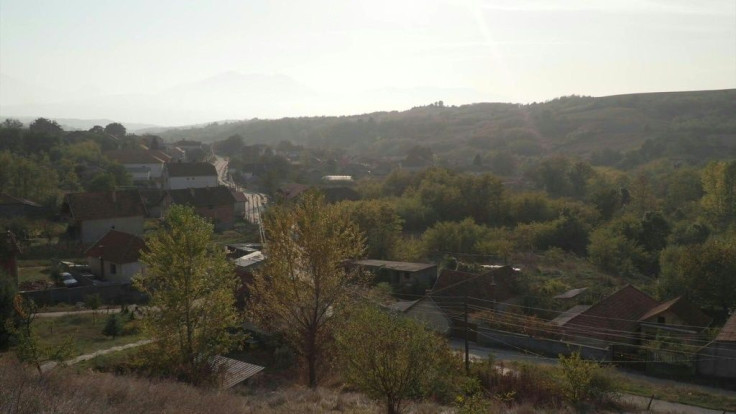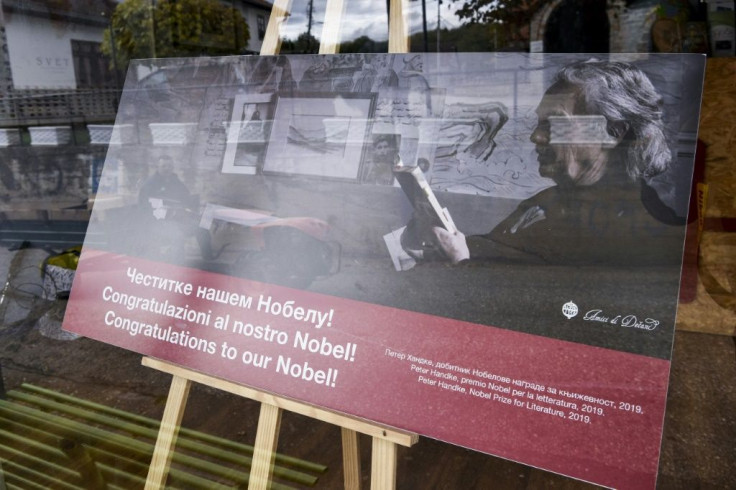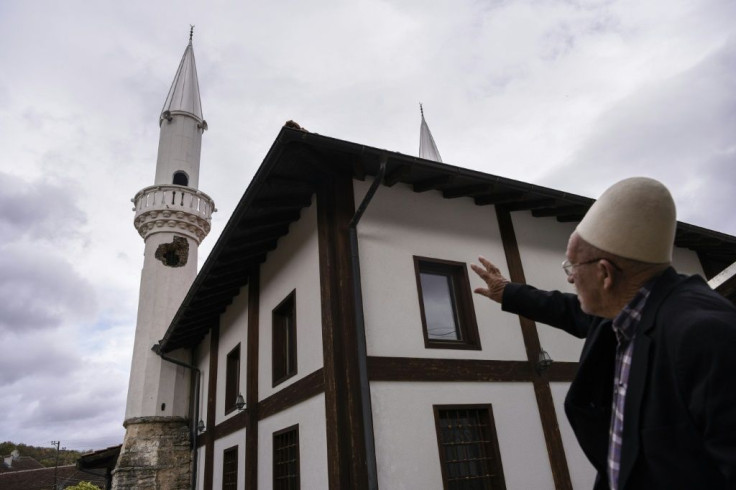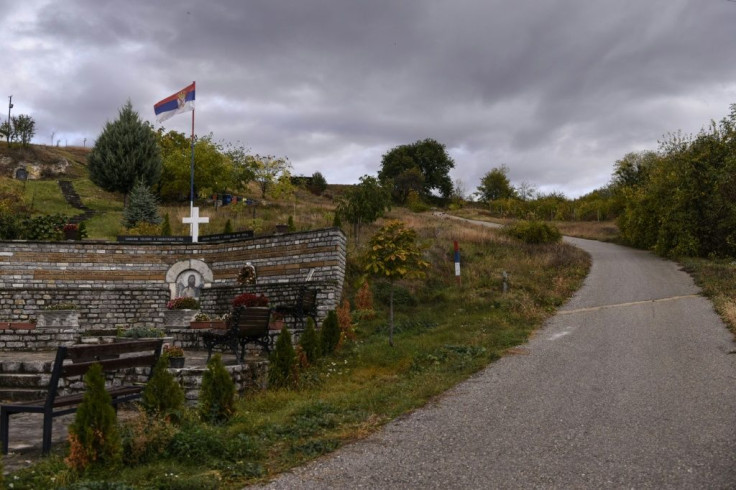In Kosovo, The Tiny Serb Village With A Friend In Handke

In the small wine-growing village of Velika Hoca in southern Kosovo, every household has a copy of a Peter Handke book.
The farmers also know the controversial Nobel prize winner personally: Handke has visited more than five times and donated nearly 100,000 euros to the Serb enclave of around 500 people, who live apart from Kosovo's ethnic-Albanian majority.
"He's a good man. Only he has remembered to help us," says local Vesna Manitasevic, explaining how each resident received around 38 euros from the first of his donations.
The tight-knit community is delighted by their Austrian benefactors' latest and most prestigious award -- the Nobel Prize in Literature that he will officially receive on December 10.
But their neighbours are not.
Across much of Kosovo and the Balkans, Handke's special affection for Velika Hoca is another reminder of the writer's steadfast support for Serbs, even as their troops committed atrocities during the 1990s wars that shattered Yugoslavia.
A lifelong provocateur, Handke downplayed war crimes and argued that Serbs were unfairly portrayed as the only aggressors by the Western press.
He even spoke at the funeral of late Serbian strongman Slobodan Milosevic, who died in a prison cell in the Hague in 2006 while he was on trial for genocide, war crimes and crimes against humanity.

When the Nobel committee awarded Handke literature's highest honour, they ignited moral outrage around the globe.
But in the centre of Velika Hoca, a large banner hangs with the image of the bespectacled author reading a book.
Written beneath it are the words "Congratulations to our Nobel!" in Serbian, English and Italian.
Locals say they feel gratitude to a man who understood their plight as a tiny minority in Kosovo, which was a Serbian province until it broke away in the 1998-99 war.

"We are proud he is a friend of Velika Hoca," said Marko Spasic, the director of the elementary school.
"He saw that we were a surrounded enclave, and I believe he felt compassion for us".
Over the course of several visits, Handke developed a romantic fascination with Velika Hoca, which is one of the oldest Serb settlements in Kosovo and boasts more than a dozen stone Orthodox church buildings, some of which date from the Middle Ages.
According to the village chief Miroslav Lukic, the writer gave the town two donations of 50,000 and 48,000 euros each.

"Even if there are big problems, I think life has a good rhythm here", Handke said during a 2014 visit, explaining that he "came to inform myself what the village needs".
"I can be alone here. I can hide. I can walk very hidden behind the hills," he said.
Following an earlier week-long stay in 2008, just after Kosovo declared independence, Handke penned a portrait of the town titled "Die Kuckucke von Velika Hoca" (The Cuckoos of Velika Hoca).
The slim volume, which every family received in Serbian, is "part literature, part journalism", according to the publisher.
The village, shrunk down from its pre-war population of about 1,700, is one of several small Serb communities scattered around Kosovo, with Serbian flags announcing its loyalties to Belgrade.
The bucolic vineyards edge up against those of their Albanian neighbours in Hoca e Vogel -- a place Handke never visited.
While the two communities are no more than three kilometres apart, their lives rarely intersect, with the wooded path between them abandoned and overgrown.
"He should have come here, where there are victims," says Abdurrahim Berisha, a 60-year-old farmer in Hoca e Vogel, pointing with a trembling hand to the cemetery where his family are among 40 civilians killed during the war.
Three of his children and 10 other close relatives were among those slain by Serb fire while they were trying to find shelter in the mountains, he told AFP.
A minaret rising from the local mosque still bears a large hole blasted open during the war, which claimed more than 13,000 lives, mostly Albanians.
Serbs in Kosovo also suffered, with around 2,000 killed and tens of thousands forced to flee their homes.
In Velika Hoca there was a spate of kidnappings, including two visiting Serb journalists who were never found.
Two decades later, "relations between the two villages are frozen," said Ramadan Krasniqi, a former fighter with the Kosovo Albania guerilla troops.
For Albanians in Kosovo, Handke made his allegiances clear when he returned the money from Germany's prestigious Buechner prize in 1999 to protest the NATO bombing that forced Serbs to withdraw from the war with Kosovo.
"He is a terrorist as Milosevic," Abedin Krasniqi, a 72-year-old in the Albanian village, said of the Nobel prize winner.
"If it was down to me I wouldn't let him set foot in Kosovo".
© Copyright AFP 2024. All rights reserved.




















